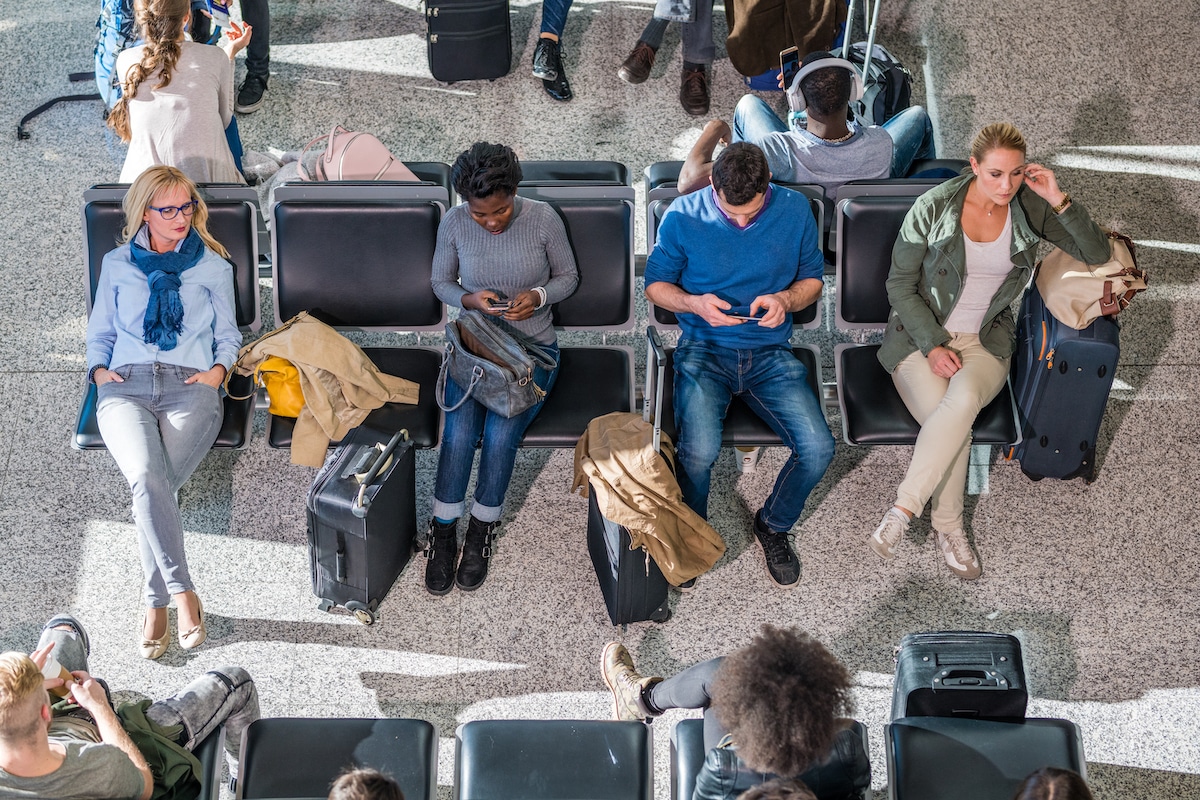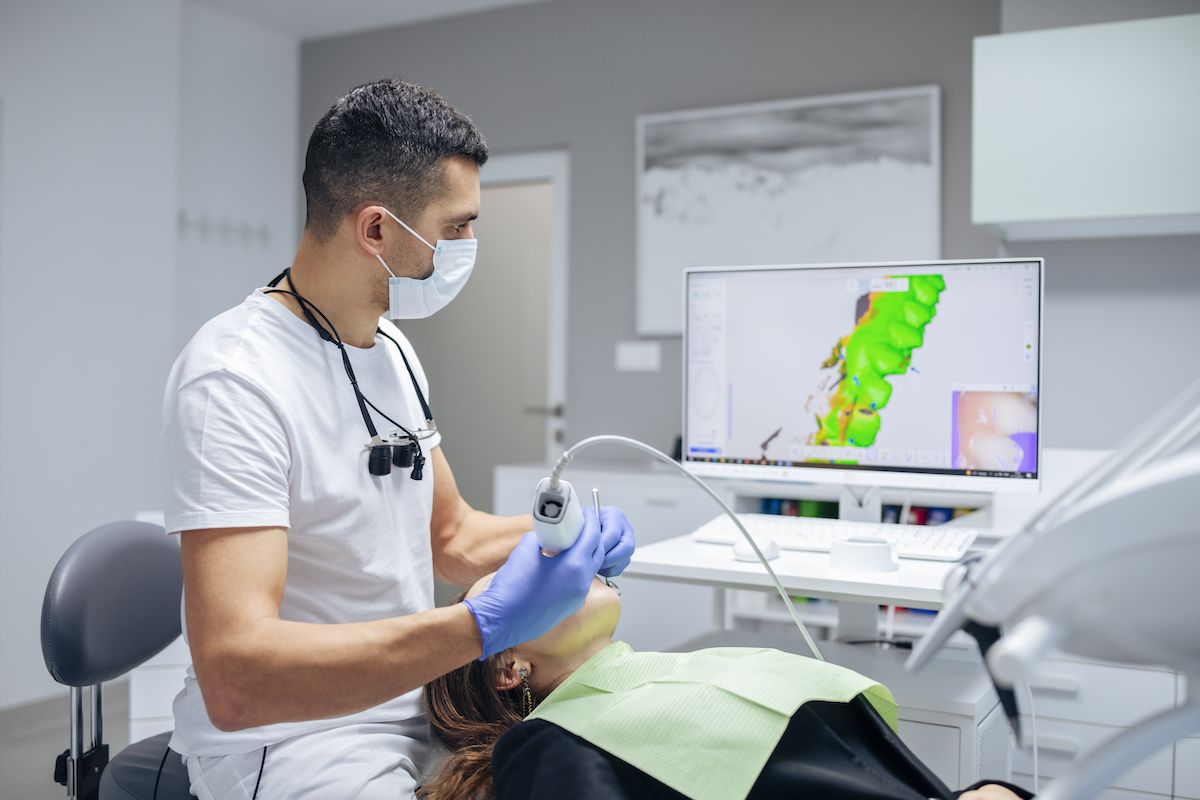Tips for Data Security While Traveling

You’ve likely recently come across a warning from the FBI about the risks of using public USB ports. It is a healthy reminder of the ever-present threat of hackers and the need to practice good general security habits, especially when traveling. In this blog, we’ll discuss crucial tips for maintaining digital privacy and data security while traveling, whether at an airport, coffee shop hotel or any public setting. After all, protecting personal and business data is always a shared responsibility.
Public USB Port as a Risk to Data Security
The specific FBI caution against using public USB ports centered around “juice jacking.” While juice jacking is just one method for the corruption of USB ports, it is a particularly deceptive technique in which hackers use public charging stations to access a device’s data or install malware. Connecting a device to a compromised charging port or using a tampered charging cable allows attackers to potentially access the device’s data, passwords and other sensitive information. In some cases, they might even install malware that can remotely control the device, monitor activities, encrypt data and demand a ransom.
So, what can you do to protect yourself from these attacks? The most straightforward practice is always to carry a wall port to plug your USB cable into. This basic precaution can go a long way in helping you avoid potential breaches and compromised devices.
There are still options when traveling internationally or if you cannot access a plug-in power source. You can bring a USB battery pack or use a personal USB cable to charge directly from another of your devices. Another option is a charge-only USB cord, known as a “USB condom.” These protective items are an affordable and effective solution that significantly reduces the risk of compromising your data while charging devices.
One other essential note, it’s crucial to keep your device’s software up to date since outdated software is more vulnerable to attacks. Installing security patches and system updates as soon as they become available safeguards your device against known vulnerabilities.
Data Security While Traveling
It’s important to note that public USB port risks are not the only data security threats faced when traveling or in public settings. In addition to these threats, other potential risks exist, such as shoulder surfing and cyber-attacks through seemingly trustworthy Wi-Fi networks.
As a traveler or someone frequently in public settings, it is essential to be aware of these diverse risks and adopt a comprehensive approach to protecting data. These precautions include being careful about the networks you connect to, the information you share and how you handle devices in public spaces.
VPNs and Wi-Fi Security
Free Wi-Fi networks, often found in airports, hotels and coffee shops, pose significant problems. These networks frequently lack proper management, making them vulnerable to security threats from bad actors waiting for easy targets. Additionally, they likely don’t encrypt or protect browsing traffic, and might require the sharing of some personal information to gain access. If possible, consider using a personal hotspot from mobile device to ensure the greater security. Using a personal hotspot lets you control the network you’re connecting to, making it less likely for hackers to intercept data.
Using a virtual private network (VPN) to secure your internet connection is essential when away from home or office networks. A VPN establishes an encrypted tunnel between your device and the internet, protecting data from potential eavesdroppers and hackers. When selecting a VPN service, choose one with a strong reputation, end-to-end encryption and a no-logs policy. “No-logs” means the VPN provider doesn’t store information about online activities, ensuring your privacy remains protected even if the provider is compromised.
Privacy Screens
Physical security is also essential while traveling. You never know who might be looking over your shoulder in crowded places like airports or busy coffee shops. A skilled attacker can capture astonishing amounts of information by observing your screen.
To protect privacy, consider using a privacy screen on your devices. These screens make it difficult for others to see your screen from an angle, helping to prevent unwanted snooping. Privacy screens offer a relatively inexpensive and easily available solution that provides further security for your devices.
Protecting Sensitive Company Information
Your company’s security protocols, domain names, email addresses, applications and intellectual property are potential cyberattack targets. When traveling, it’s essential to stay vigilant in safeguarding this information, as it can be used to craft targeted attacks against your business or colleagues.
Exercise additional caution when using devices in public spaces, as cell phones with high-quality cameras can easily capture images of your screen or record conversations for later review. Always be mindful of your surroundings and take extra precautions to secure your company’s sensitive information.
Follow Company Protocols
Always follow your company’s guidelines for accessing and storing sensitive data while traveling. These procedures may include using encrypted devices or secure cloud storage services to protect your files. It’s also important to keep track of any physical documents containing sensitive information, as they can be easily lost or stolen during transit.
Ensure the use of strong, unique passwords for all accounts and enable multi-factor authentication (MFA) whenever possible. MFA adds an extra layer of security by requiring additional verification methods, such as a fingerprint or a one-time code sent to your mobile device.
If your devices are lost or stolen, enable remote wipe capabilities. This feature lets you erase all data from your devices remotely, preventing unauthorized access to sensitive information. Many organizations will require this as a standard component of device setup.
Protecting Personal Information on the Go
Ensuring data security while traveling is a shared responsibility that requires vigilance and good habits. You can better protect personal and business data from potential threats by following the tips outlined here. Always use your charging equipment, connect to secure networks through a VPN, use privacy screens and be cautious with sensitive information. By adopting these everyday security practices, you can enjoy peace of mind and focus on making the most of your travels. Stay safe and make digital security a top priority.
Data Security with a Trusted Partner
Protecting your personal or company data is always more effective when collaborating with a trusted partner. OneNeck offers a comprehensive approach to security services, ensuring the safety of your organization’s data in the cloud, on-premises, or within a hybrid environment. In addition, we provide practical security awareness training through extensive collaborations with trusted partners. This training educates users, effectively reducing risk and enhancing your organization’s security culture.
Ready to enhance your personal and organizational security? Contact us today to speak with a OneNeck security expert and take the first step toward a more secure future.
Additional Resources:



